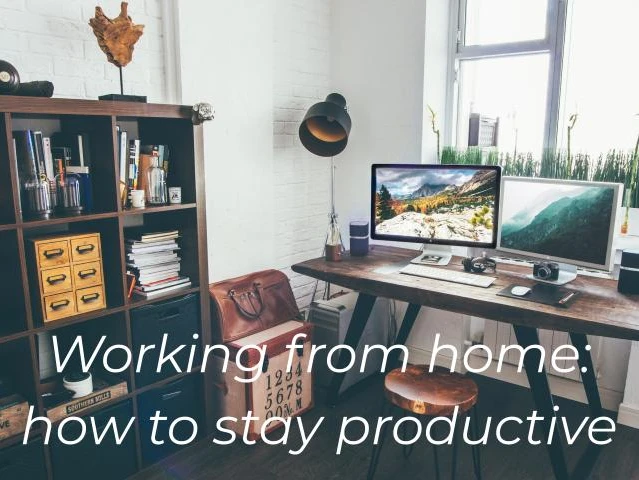9th April, 2024 •

Written by Higson
17th March, 2020 • 3 min

As offices shut their doors and employees are sent home to work, there is confusion, demotivation, loneliness and a drop in productivity.
It’s essential that we all do what we can to warn off the loneliness, stay engaged and remain productive even when working from our kitchen table.
“Productivity is never an accident, it is the result of commitment to intelligent planning and focused effort” ~ Paul Meyer
1. Structure your day
A common problem with working from home is flitting between tasks and feeling as though you didn’t get enough done. You can avoid this if you plan your day ahead of time, know what you are going to do when – block out tasks in your calendar.
You can also improve productivity by avoiding multitasking. Despite popular belief, it is a myth and costs us mental energy which exhausts the brain. Instead, focus on one task at a time. Task blocking is a great way to avoid this.
Also, turn off that email notification that keeps popping up in the corner of your screen – it’s costing you 60 seconds of brain energy every time you even just look at it! Remember that checking the news can be a distraction.
“Focus on being productive instead of busy” ~ Tim Ferriss
2. Take effective breaks
It is easy when working from home to forget to take effective breaks, so make sure you schedule and take them regularly. 1 hour followed by 10 minutes is good practice.
Regular short breaks away from work and screens will help you stay more alert and productive for the whole day and avoid that slump in the afternoon. One study found that taking a five minute walking break every hour boosted energy levels, sharpened focus and improved mood throughout the day.
Make the most of the fact that from home you can take a yoga break, go for a walk, read a book on your sofa or speak to a family member.
3. Reward yourself
You don’t have your team there to tell you you’ve done a good job. So set yourself small achievable goals in your day. We get a dopamine hit when we complete a task, and dopamine makes us feel happy.
Once you achieve them, reward yourself. This might be something as small as a biscuit or a walk around your local park.
4. Be aware of your self talk
When you have a lot of time on your own our self talk (chatter in our own mind) can take over and drive us into a negative mood. This can lead to the feeling of loneliness and demotivation.
The great thing is you can control your self talk. Start with listening to what you are saying to yourself, challenge negative statements and talk to yourself in the third person.
This helps you talk to yourself as if you were talking to a friend and you will most likely be kinder. Ask yourself: would I say that to a friend? If the answer is no, then stop speaking to yourself like that.
5. Write down 3 positives
It can be hard to switch off when you are working where you are living. So at the end of your work day, take a moment to write down three things that have gone well.
Firstly, this will help you end the day with a sense of achievement and positivity.
Secondly, it will help you put a full stop to your day and switch off when you don’t have the usual commute to do that.
Science also shows by simply recording 3 positives, it will help you start the next day being:
At Higson we are coaching individuals in how to stay positive and productive at this time, so get in touch if you need any help or support for you or your team.
“Wake up with determination, go to bed with satisfaction” ~ George Latimer